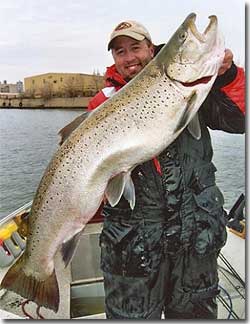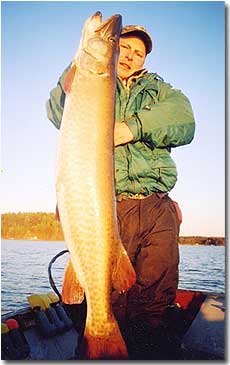The Fine Details of Fishing
The Fine Details of Fishing
When someone starts a conversation about fishing I’m always ears, after all it’s my favorite hobby and there is almost always something to be learned from a fellow angler. There is so much involved in this sport/hobby these days that a person can get overwhelmed very quickly. Every year we see new lures, new laws, new technology such as fish finders and gps units, maps, fishing equipment and many more things that are hard to keep up with. Among all of the changes I always like to go back to the basics and keep things simple, if at all possible. The fishing Log Of Information  Whether you fish tournaments, fun fish, are a guide, or just starting off, a fishing log has been proven to be amongst one of my most important resources in fishing. If you have not started a fishing log NOW is the time to do so! There are so many reasons why it is important to have a fishing log and I will attempt to try and cover some of the reasons why. First of all your log is a resource you can look back at every year, filled with some of the most valuable info you’ve gained that year. In my fishing log I enter data with following information: I log the Date I fished, the lake I fished, The conditions (sunny or cloudy etc..) the water temps, fishing (good or bad), GPS coordinates if I fished a specific location, trolling speeds if trolling, baits used, wind conditions, and at times the moon faze. Other things to consider are current directions, peak fishing conditions or the minor and major feeding times, weather temps, thermo cline, and or water conditions (high, low, muddy, clear). You can also enter information in your log that you’ve learn from reading articles, or watching T.V programs, or anything that will help you catch more fish. Whether you fish tournaments, fun fish, are a guide, or just starting off, a fishing log has been proven to be amongst one of my most important resources in fishing. If you have not started a fishing log NOW is the time to do so! There are so many reasons why it is important to have a fishing log and I will attempt to try and cover some of the reasons why. First of all your log is a resource you can look back at every year, filled with some of the most valuable info you’ve gained that year. In my fishing log I enter data with following information: I log the Date I fished, the lake I fished, The conditions (sunny or cloudy etc..) the water temps, fishing (good or bad), GPS coordinates if I fished a specific location, trolling speeds if trolling, baits used, wind conditions, and at times the moon faze. Other things to consider are current directions, peak fishing conditions or the minor and major feeding times, weather temps, thermo cline, and or water conditions (high, low, muddy, clear). You can also enter information in your log that you’ve learn from reading articles, or watching T.V programs, or anything that will help you catch more fish. If you’re a tournament fisherman try to find out where the tourney was won and what baits/techniques were used to win that tourney along with the 2nd 3rd and 4th place finishers, and make sure you add any useful info you can think of. Your log will be a valuable tool and you will be glad you took the time to keep specific detailed information. Now you don’t have to go overboard on the info you add, but you will be grateful when you look back and ask yourself “Was I fishing in April or May of last year when I caught all those walleyes, and what was the water temp?” If it’s in your log you should have your answer to any of those questions. After all if you have a memory like me you tend to forget plenty of things over the year. So, the more detailed info you will only benefit you in years to come! Lost Information Remember we are in the age of new technology and as much as I try to keep up to date on everything there is still a chance you could loose your info if you do not back up your data or enter it into a fishing log. I’ve had my PC crash along with GPS units and I’ve lost everything, except for some things I saved on a back up disk. So before this happens to you I’d highly recommend going out to your GPS units and take the time to write down GPS coordinates or specific info saved in your computer, that is most valuable to you. There is also a chance of your unit breaking, or being stolen so what would you do if that happened? Keep it simple Some of the best words of advice I’ve gotten over the years are “keep it simple”. Although many times I’ve thrown that rule, right out the window, it is something I always try to pass on to other fisherman, especially now days. I always like to have certain baits or equipment in my boat while fishing. I also like to be prepared to adjust to the conditions, as an example from a flat calm morning to a windy choppy afternoon. More often than not, I will run out of patience and I will go to, or try different baits, spots techniques, etc… and at times it pays of other times I’m wasting gas and time. There is only so much you can do in one day; usually I try to be well equipped to fish any certain pattern. However keeping things basic and simple will usually be your most productive methods of fishing.  One of my basic rules I use is, “never leave fish to go find fish”. When I say this I’m referring to a specific species, meaning I will not run 10 miles north on Lake Michigan to look for Salmon if I’m catching salmon to south. However I will leave a small group of walleyes on a weed edge and take my chances trolling for the bigger suspended fish over basins, in hopes of a trophy. The same can be said about small gils or panfish, I will not sit and catch 3-5 inch blugils all day if I know there are bigger fish to be had. My point is if your marking decent fish on the locator and you know they are the fish your after, try to adjust your patterns, and if possible simplfy things. One of my basic rules I use is, “never leave fish to go find fish”. When I say this I’m referring to a specific species, meaning I will not run 10 miles north on Lake Michigan to look for Salmon if I’m catching salmon to south. However I will leave a small group of walleyes on a weed edge and take my chances trolling for the bigger suspended fish over basins, in hopes of a trophy. The same can be said about small gils or panfish, I will not sit and catch 3-5 inch blugils all day if I know there are bigger fish to be had. My point is if your marking decent fish on the locator and you know they are the fish your after, try to adjust your patterns, and if possible simplfy things. Keep an Open Mind Just when you think you’ve got the fish patterned, they move or better yet stop biting. We’ve all had good days and we’ve all had bad days, this is what keeps me going. I love the challenge of trying to figure out what the fish want, or where the active fish are. There are so many different techniques a person can use to catch fish. As examples everyone knows jigs work great for walleyes, however there are times when slip bobbers, trolling lead core, trolling cranks, casting cranks, slip bobbing, bottom bouncing, or just dragging a worm, minnow or leech prevail best. One of my favorite baits to throw for muskies are buck tails, but there are times when speed trolling, top water, glide baits, swim baits or live bait will prevail. The same can be said about bass with plastic worms, but buzz baits, spinners, top water, jerk baits, Carolina rigs, drop shot, flipping or pitching jigs. What does all this mean? With time on the water and applying what you learn from fellow anglers, guides, etc. you will learn when to, and how to use the proper baits under the right conditions. Some times it really does not matter especially when the fishing is good. However, when the fishing is really tough, or the fish have moved, is when you will need to try a new game plan or really slow down and go to a finesse approach. This can be true for just about any type of fishing you do; every fish has and responds to certain patterns/ techniques that work well under certain conditions at certain times of the year. What I mean is fish activity will change dramatically depending on water temps. If I’m steelhead fishing early in the spring with low clear water I will drift with spawn and at times use 4 or 6 lb fluorocarbon leaders. When the water temps warm and fish begin to spawn, yarn, spinners, twister tails and small cranks will at times will yield more results, the same can be said for most game fish as well. Again it basically boils down to knowing what to use and when to use it, so keep and open mind and try your best to learn as many techniques as possible, and don’t be afraid to try them, or new area’s of a lake. After all…you’ll be surprised whats out there if you spend time looking! Best of luck to you this summer! Eric Haataja BIG FISH GUIDE SERVICE
www.wibigfish.com
[email protected]
|
